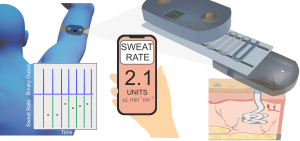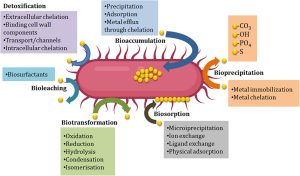
Heavy Metals, Your Immune System, and Autoimmunity
Heavy Metals, Your Immune System, and Autoimmunity The Unseen Link Ever wondered why, despite eating well and cutting out junk, your body still feels off? Or why auto-inflammatory flare-ups don’t

If your libido has taken a mysterious nosedive or things just aren’t working the way they used to in the bedroom, the culprit might not be stress, aging, or hormones. It could be toxic metals quietly building up in your system.
Heavy metals like lead, arsenic, mercury, and cadmium don’t just affect the brain, kidneys, or liver—they can seriously disrupt your sexual health, and most people don’t even know it. Here’s how these sneaky toxins may be interfering with your energy, arousal, fertility, and overall intimacy.
🚫 First, What Are Heavy Metals?
Heavy metals are naturally occurring elements that have high atomic weights and densities. Some—like iron or zinc—are essential in tiny amounts. But others, like lead, mercury, cadmium, and arsenic, have no safe role in the body and are toxic even at low levels.
These metals can enter your body through:
And unfortunately, once inside, they don’t just leave. They get stored in fat tissues, bones, organs—and yes, even reproductive organs.
🍆 How Heavy Metals Affect Male Sexual Health
🌸 How Heavy Metals Affect Female Sexual Health
🧬 Mechanisms: How Do These Metals Wreak Havoc?
🧠 1. Disruption of the HPG Axis (Hypothalamus–Pituitary–Gonadal Axis)
🧪 2. Oxidative Stress
⚠️ 3. DNA Damage
🚷 4. Inhibition of Enzymes
😞 Symptoms You Might Notice
If you’ve ticked a few of these boxes, it may be worth investigating heavy metal exposure.
✅ What You Can Do
🛌 Final Thoughts
Heavy metal exposure might seem like something out of an industrial disaster movie—but for many of us, it’s a quiet, ongoing reality. Unfortunately, the consequences also affect our hormones, energy, intimacy, and overall well-being.
The good news? Sexual health often improves dramatically once these toxins are reduced and the body’s natural systems are rebalanced.
If your love life has taken a hit and nothing seems to help, it might be time to look beneath the surface—where metals may be silently sabotaging your desire.

Alkaline Detox Diet best body detox best detox kit best detox supplements best full body detox best heavy metal detox best heavy metal detox for adults best herbal detox best metal detox best thc detox kit body cleanse supplements body detoxification supplements Causes Arsenic Poisoning children and heavy metals chlorella detox Copper Toxicity in Drinking Water detox kit detox pack detox supplements detox tablets Does Sweating Really Release early symptoms of heavy metal toxicity full body detox kit hair mineral analysis heavy metal detox heavy metal detox kit heavy metals detox heavy metals in food Heavy Metals in Makeup Heavy Metals in US Foods HMD Heavy Metal Detox HMD Ultimate Detox Pack Natural Heavy Metal Detox natural supplement for aluminum ORGANIC CHLORELLA pure body detox pure body extra detox Sexual desire in women Sources of Copper Exposure Thallium Poisoning toxic metal detox Toxic metals and sex Toxic metals and women's sexual desire toxic metals in food ultimate detox

Heavy Metals, Your Immune System, and Autoimmunity The Unseen Link Ever wondered why, despite eating well and cutting out junk, your body still feels off? Or why auto-inflammatory flare-ups don’t

Wearable Sweat-Induction Devices for Detox What Works, What Doesn’t, and How I Combine Them with Dr. Georgiou’s HMD™ Protocol When people ask me for a “do-able” detox routine that doesn’t

The Microbiome’s Role in Heavy-Metal Absorption and Elimination Why your gut bacteria can make detox easier—or harder (and how HMD™ fits in) If two people eat the same fish, drink
Detoxmetals.com specializes in natural heavy metal detox supplements for eliminating heavy metals naturally from the body.
GMG DA VINCI HEALTH LTD Panayia Aimatousa 300 Aradippou 7101, Larnaca Cyprus
[sibwp_form id=1]
If you’re not receiving an email in your inbox, please check your spam folder. Sometimes legitimate emails can be mistakenly marked as spam. If you find the email there, you can mark it as “Not Spam” to ensure future messages from that sender go to your inbox
